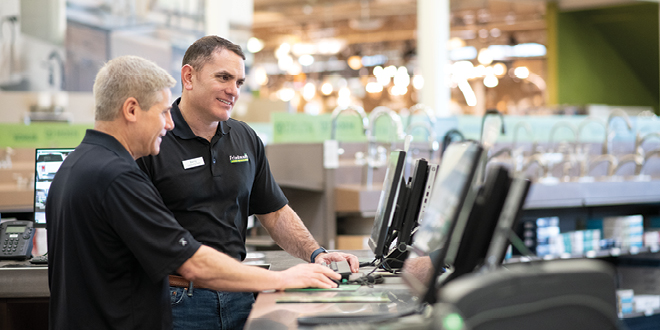For more than 70 years, Friedman’s Home Improvement has sought new ways to serve its California customers. With four locations and a diverse customer base that includes weekend DIYers, professional builders and every trade in between, the Friedman’s team is committed to finding new ways to meet the challenges of modern retail.
In December, the company implemented a new enterprise resource planning (ERP) system, which standardizes processes across the company and modernizes its infrastructure.
Friedman’s Home Improvement president and CEO Barry Friedman and Richard Marano, vice president of technology, say implementing the new ERP system provided a foundation for the future of the business.
ERP systems promote teamwork and specialization.
ERP systems refer to a suite of integrated business applications companies can use to manage core activities, from point-of-sale interactions to warehouse management and accounting. They can be tailored to fit a business’s individual needs, prioritizing certain tasks and collecting data from each corner of a company while providing real-time information to employees.
“The new ERP system enables Friedman’s employees to fulfill one of our core values: to connect,” Marano says. “Our mission is to deliver the human side of home improvement, and we knew we needed to do that for this project.”
Under Friedman’s former system, a salesperson would write an order, then complete a purchase order and follow up with it. As time passed, the delivery would arrive at the store and then the salesperson would contact the customer to arrange delivery or pick up. In this workflow, employees had to constantly monitor the progress of their activities, hoping nothing fell through the cracks and customers received what they ordered when they needed it.
With the new system, employees are running a relay race; always focused on their department and their core activities. The ERP system oversees individual processes, allowing employees to specialize in a single line of work and thereby improve their contributions to customer service.
“At Friedman’s, everyone has always been a part of the same team, but we didn’t need each other to win,” Friedman says. “We’ve been evolving to a more specialized system of work, which makes individual contributions critical to the success of the entire organization.”
Every company will have different goals for its ERP system, but there are a few common benefits most businesses seek when they implement or upgrade their ERP system.
Real-time access to data. Modern ERP systems enable employees from all corners of a business to access a single data set to make decisions and provide customers with information.
Improved collaboration. With a functioning ERP system, employees benefit by being able to see the big picture of any business’s operations. Separate departments can anticipate each other’s needs and act accordingly to ensure a smooth retail experience.
Greater customer service. Most ERP systems come complete with a customer relationship management (CRM) tool to help organize key information of your top customers. This database can grow with time, giving your team insight into customers’ contact information, purchasing history and other key details to serve them best.
Consider what your business needs from an ERP system.
Friedman and Marano agree finding the right system for your specific business needs is critical. When the former ERP system turned 20, the team decided it was time for a replacement.
“Knowing retail is moving so quickly, we wanted to choose a system that would be continuously improving. We didn’t want to get painted into a corner, we wanted to evolve at a more rapid pace than we had over the last 73 years,” Friedman says.
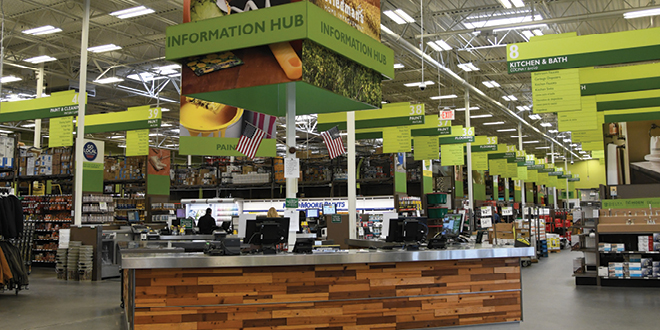
Roughly five years ago, Friedman sent a team of employees to the National Retail Federation’s Big Show, a retail conference, and charged them with learning more about ERP providers.
After considering multiple options, Friedman’s ultimately chose Microsoft D365 as its ERP solution. Friedman says employees were already familiar with Microsoft’s programs. Microsoft D365 also relies on cloud computing technology, which provides extra security and convenience for the team.
“Friedman’s isn’t just a lumberyard, and it’s not just a hardware store,” Friedman says. “We’re a hybrid, and there was no system that fit our needs right out of the box. Microsoft allows us to be a little bit of both industries.”
Marano says choosing Microsoft also positioned the company to benefit from a host of other products and services.
“The beauty of the Microsoft platform is that it allows people who specialize in your industry to extend the functionality of your particular system,” he says. “Microsoft has modernized the D365 product for years and stands behind all the infrastructure pieces, meaning we can go to one partner and get every solution we need.”
Implementation partners are critical.
Marano joined the company roughly 18 months ago to oversee ERP implementation and other tasks. He brought years of home improvement retail insight and direct ERP implementation experience, motivating team members to call him “the rudder” of the project.
He says one of the key aspects of successful ERP implementation is finding both a software provider to deliver a reliable product and collaborating with an implementation partner to ensure that system fits your company’s needs.
 “When you’re talking about so many areas of the company that require functionality, that affects how this company does or wants to do business, your implementation partner is key,” Marano says. “Properly vetting your ERP system and your implementation partner ensures that both the tech side and the business side of the company know where we’re going.”
“When you’re talking about so many areas of the company that require functionality, that affects how this company does or wants to do business, your implementation partner is key,” Marano says. “Properly vetting your ERP system and your implementation partner ensures that both the tech side and the business side of the company know where we’re going.”
Friedman’s chose Sunrise Technologies as its implementation partner, specifically because it understood home improvement retail and could make key alterations to the new ERP platform.
“Sunrise understood some of the key functions of our ERP system, especially around job site locations and specific contractor needs,” Marano says. “They also understood how pricing needs to be competitive for contractors. They are very retail-focused, and that was hugely important in the decision.”
ERP systems reveal hidden facets of your company.
Both Friedman and Marano agree the process of researching and implementing a new ERP system requires everyone involved to learn more about their company.
 Friedman says a major component of implementing the new system was understanding specific workflows from different departments and identifying how they connect with one another. His team began reviewing each corner of the business, recording processes across departments to standardize them within D365.
Friedman says a major component of implementing the new system was understanding specific workflows from different departments and identifying how they connect with one another. His team began reviewing each corner of the business, recording processes across departments to standardize them within D365.
“We didn’t have those processes written down before,” he says. “Now, we can teach those processes and share them with new team members. It’s brought more standardization to the company.”
Marano says these written processes were critical in implementing the ERP system.
“When departments had clear SOPs, we were able to provide ERP training that addressed those procedures concretely,” he says. “They were a huge benefit to the company.”
Friedman says that legwork was valuable not just in the ERP implementation, but in understanding the company he guides.
“Before taking on a tech project, you have to understand your team,” Friedman says. “Technology doesn’t solve the process problems, but it does give you the tools to solve them.”
Companies implement ERP Systems to ...
Companies implement ERP Systems to ...
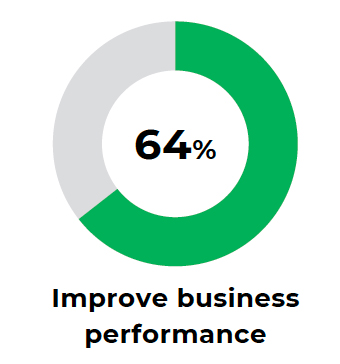
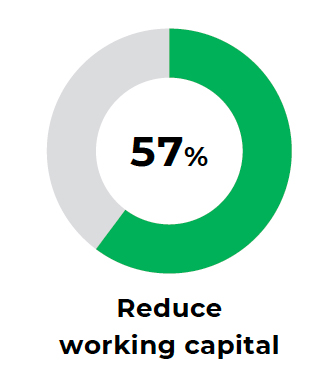
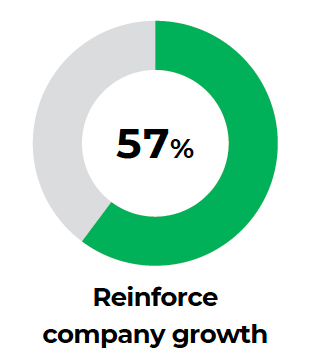
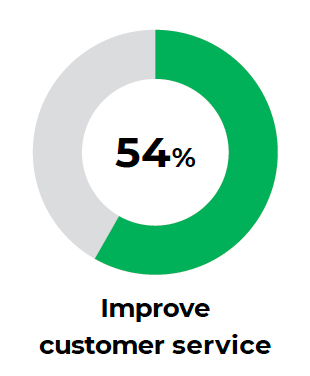
Source: 2018 Panorama Consulting Solutions
 Hardware Retailing The Industry's Source for Insights and Information
Hardware Retailing The Industry's Source for Insights and Information


